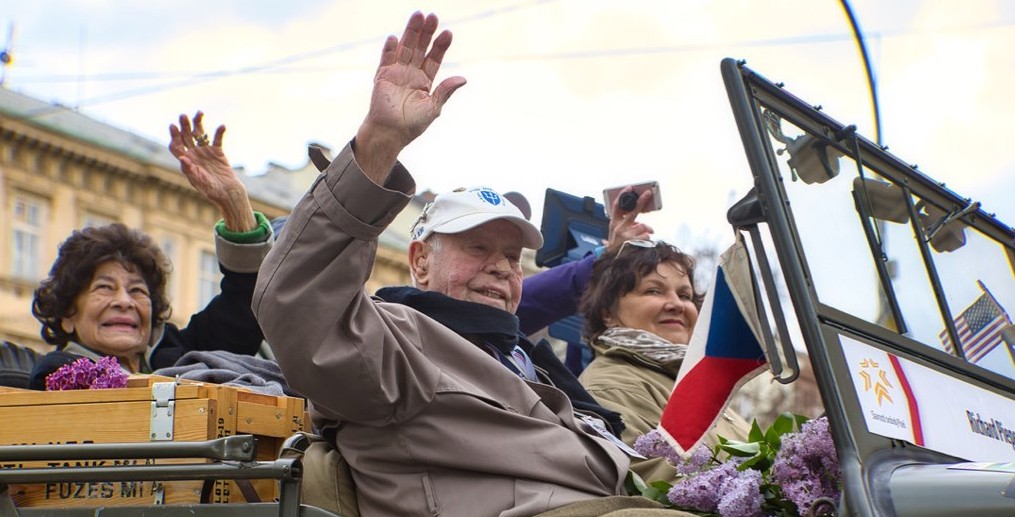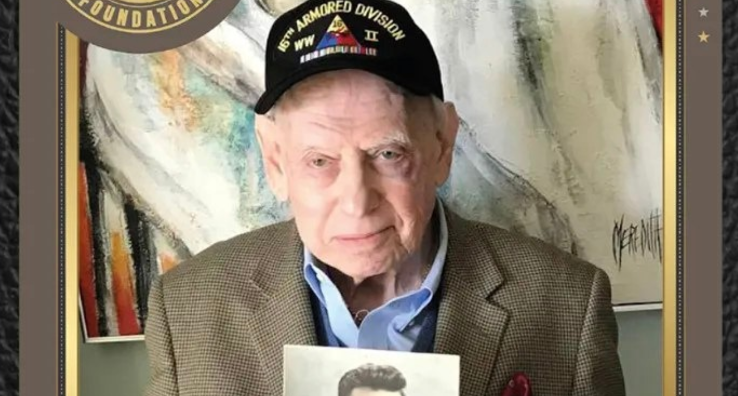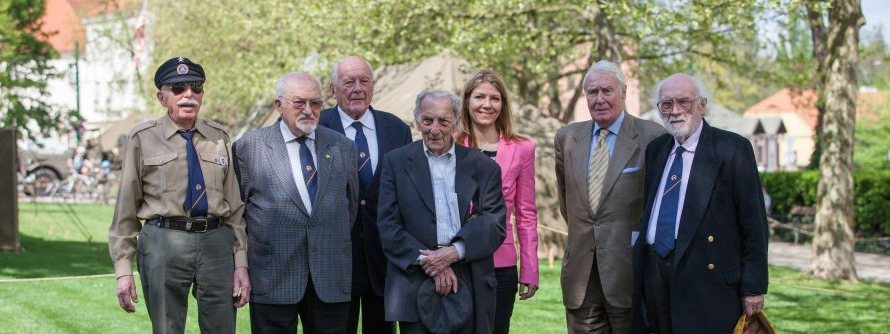

News
Czech television documentary film Plzeň speaks, free Plzeň speaks had its world premiere in Plzeň yesterday
On Sunday, May 4, a new documentary film by Czech Television, Hovoří Plzeň, svobodná Plzeň hovoří (Plzeň Speaks, Free Plzeň Speaks), had its world premiere in the Small Hall of Měšťanská beseda with the participation of a creative and acting delegation. The adventurous and hitherto unknown story about the Pilsen Uprising and the liberation of the city by the 3rd American Army was directed by Pavel Jirásek, who is also the author of the screenplay. Czech Television will premiere it on Tuesday 6 May on ČT2 at 20:55.
"I chose the almost forgotten story of Dr. Karel Šindler, a resistance fighter and former radio operator, who with his group occupied a German radio station, where he held out despite German attacks and from where he broadcast throughout the Pilsen Uprising. Not only did he pass on information, but he also complicated the situation for the occupiers by sending out disinformation, especially regarding the number of insurgents and their weapons. He himself said after the war that he had probably saved the lives of several thousand Pilseners by this broadcasting. I was very excited about this, as a person connected with the media. It shows that the struggle for liberation was not just about guns and shooting," reflects Pavel Jirásek, the film's writer and director.
The film was made over two years. The film crew visited Pilsen during the Liberation Festival at the beginning of May, when a military history club with high-quality military equipment descends on the city. In the film, viewers will see not only a military column, but also, for example, an American M4 Sherman tank in the middle of the city.
The film doesn't end with liberation, but it does hint at the immediate aftermath of the war and how the six-month American presence affected the years that followed. A specific West Bohemian protest culture emerged here, which was and is so distinctive that it has endured to this day, with the entire region defining itself through such generous events as the Liberation Festival. "We have tried to be as objective as possible and bring an account of what happened in Pilsen at the end of the war. That not only among the American soldiers, but also among the citizens of Pilsen there were many heroes who should not be forgotten," adds director Pavel Jirásek.
The film was made over two years. The film crew visited Pilsen during the Freedom Festival at the beginning of May, when a military history club with high-quality military equipment descends on the city. In the film, viewers will see not only a military column, but also, for example, an American M4 Sherman tank in the middle of the city.
The film doesn't end with liberation, but it does hint at the immediate aftermath of the war and how the six-month American presence affected the years that followed. A specific West Bohemian protest culture emerged here, which was and is so distinctive that it has endured to this day, with the entire region defining itself through such generous events as the Freedom Festival. "We have tried to be as objective as possible and bring an account of what happened in Pilsen at the end of the war. That not only among the American soldiers, but also among the citizens of Pilsen there were many heroes who should not be forgotten," adds director Pavel Jirásek.
The film was made with the financial and organisational support of the Pilsen Region and the City of Pilsen.
The reprise of the film will be shown by ČT2 on Wednesday, May 7, 2025 in the early evening.
Writer and director Pavel Jirásek / main camera Marek Jícha / dramaturg Martin Polák / editor Jiří Kubík / production manager Kateřina Zavadilová / executive producer Diana Tuyet-Lan Kosinová / creative producer Patrick Diviš













